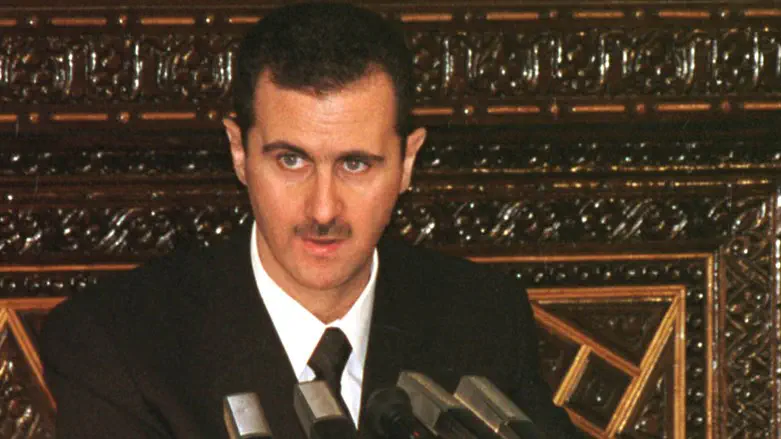
Syrian President Bashar al-Assad made a surprise visit to the United Arab Emirates on Friday.
This was Assad’s first trip to an Arab country since launching a brutal crackdown on opponents that plunged Syria into a bloody civil war in March 2011, which the United Nations says has killed 350,000 people.
Until now Assad had only left the war-torn country to visit Russia and Iran, both military backers of his regime.
The US said it was "profoundly disappointed and troubled" by the UAE's decision to host Assad.
"We urge states considering engagement with the Assad regime to weigh carefully the horrific atrocities visited by the regime on the Syrians over the last decade," said US State Department spokesperson Ned Price.
Along with most Arab states, the UAE broke ties with Syria soon after the civil war erupted, for a time even backing rebel fighters in their attempts to overthrow Assad's regime.
US-UAE relations have been warm and close for many decades. The UAE also normalized ties with Israel in 2020, in the historic Abraham Accords.
Ever since Iraq invaded nearby Kuwait in 1990, the security cooperation between the US and the UAE has increased dramatically. The energy-rich UAE hosts American troops, and UAE ports host more US Navy ships than any other country outside the US.
Despite its close ties with the US, the UAE has in recent years been warming up to the Assad regime, spearheading efforts to bring Syria back into the Arab fold despite protests from Washington.
In 2018 the UAE reopened its embassy in Syria's capital, Damascus, and in November last year, diplomats were sent there to there to meet President Assad.
An improvement of ties between Syria and its wealthy Gulf neighbor, the UAE, is a boost to Assad's government, which has been crippled by Western sanctions and international isolation.
State Department spokesman Price said on Saturday that the US would maintain sanctions on Syria “until there is irreversible progress toward a political solution.”
Assad, he said, “remains responsible and accountable for the death and suffering of countless Syrians, the displacement of more than half of the pre-war Syrian population, and the arbitrary detention and disappearance of over 150,000 Syrian men, women, and children.”
According to Price, as US Secretary of State Antony “Blinken has reiterated, we do not support efforts to rehabilitate Assad, and we do not support others normalizing relations.
“We have been clear about this with our partners… [and] we urge states considering engagement with the Assad regime to weigh carefully the horrific atrocities visited by the regime.”
On Friday, Assad and Abu Dhabi Crown Prince Sheikh Mohammed bin Zayed Al-Nahyan discussed the “fraternal relations” between the two countries, the official news agency WAM reported.
Talks also focused on efforts to “contribute to the consolidation of security, stability, and peace in the Arab region and the Middle East,” said WAM.
The pair also discussed ways of “preserving the territorial integrity of Syria and the withdrawal of foreign forces from the country,” it said, as well as means of providing “political and humanitarian support for Syria.”
Syria’s state news agency SANA said the meeting had helped to “strengthen cooperation” between the two sides.
Photographs released by Syria’s presidency showed Assad also meeting with Dubai’s ruler, Sheikh Mohammed bin Rashid Al-Maktoum, during the one-day visit.
This comes as Russia, a key backer of Assad which also has solid ties with the UAE, pressed on with its war on Ukraine.
In September 2015, Russia began launching airstrikes in support of Syria’s regime, a turning point in the conflict that eventually helped Assad regain control of most of the country.
Assad has praised the invasion Russia launched against Ukraine on February 24 as a “correction of history.”
